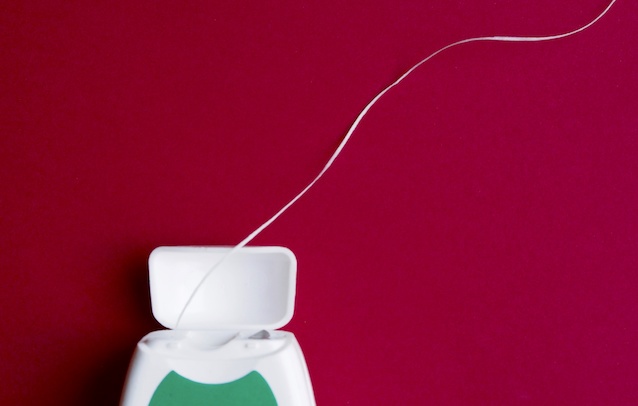
Do you dread that inevitable question that comes with every dental visit: “Have you been flossing?” Or has your hygienist moved on to the insistently demanding, “You should really be flossing at least once per day”?
While most of us recognize the honest truth — that most Americans don’t, in fact, floss their teeth regularly — it’s important to understand that flossing is about more than just maintaining your oral hygiene and making your dentist happy: flossing can have major implications for your overall physical health.
The Flossing 4-1-1
Most Americans brush their teeth at least once per day, but unfortunately, flossing doesn’t get the same star-treatment. We know that your general oral health has impacts on your systemic health, but maintaining it involves more than just brushing twice per day.
The brushing process only scrubs the front and back of your teeth, without getting the hard-to-reach bacteria that settles between teeth and along your gum line. Floss is an interdental cleaning tool that effectively removes plaque and harmful bacteria where your toothbrush can’t reach. According to clinical microbiology reviews, there are more than 1,000 species of bacteria in dental plaque, which breed to cause gum redness, irritation and bleeding, cavities, gingivitis, and other painful gum diseases.
For More Than Just a Healthy Smile
If plaque and tooth tartar build up and become infected, it could lead to periodontal disease, which routinely infects an average of 41.5% of American adults yearly. Periodontal disease destroys the bone tissue, resulting in higher risk for tooth decay and loss. Studies conducted by the American Dental Association also link gum disease to other severe health conditions, such as heart disease, diabetes, and stroke.
Cardiovascular Disease
Gum disease and the bacteria that invades periodontal infections put patients at a higher risk for atherosclerosis (ATH), which involves a chronic low-grade inflammation that can lead to a host of other systemic conditions. In fact, the prevalence of cardiovascular diseases in patients with periodontitis is 25–50% higher than in healthy individuals. And, unfortunately, many patients don’t realize they’ve developed gum disease until they start to feel the painful, tender symptoms - at which point it treatment can be more difficult.
Kidney Disease
"If plaque and tooth tartar build up and become infected, it could lead to periodontal disease, which routinely infects an average of 41.5% of American adults yearly."
According to a study by the American Association for Kidney Disease, individuals with periodontal disease are 4.5 times more likely to have chronic kidney disease (CKD). If harmful, infected bacteria lives in your mouth, it inevitably enters your bloodstream, eventually attacking the kidneys. People over the age of 60 have a significantly higher risk than younger patients, so it’s important to make flossing and healthy oral hygiene habits part of our regular routine as early as possible.
Pneumonia
When the same bacteria are swallowed and inhaled, infections can spread to your lungs and cause severe cases of pneumonia. In one study, improving oral hygiene with regular flossing and brushing routines reduced hospitalized cases of pneumonia by 40%.
Cancer
One study conducted by The Lancet Oncology showed an increased risk of cancer in 48,000 American men who reported dealing with periodontal disease. While these two ailments aren’t causally linked, it’s important to be conscientious and take a holistic approach to oral health. There’s no value in underestimating the importance of flossing if it can even potentially prevent oral and systemic diseases.
Smart Dental Care Starts with Flossing
The mouth is often referred to as “the gateway to your body”, and in many cases, it’s also the gateway to whole body health.
Flossing is critical to remove potentially harmful plaque where your toothbrush can’t reach. We always recommend a combination of regular professional cleanings at your local dentist, brushing your teeth at least twice per day, and flossing at least once per day. Getting regular check-ups with your dentist is essential to ensure oral and whole body health, which is why we’ve created simple, trusted dental discount plan that both individuals and entire families can afford.
See how much you can save with the Dental Solutions discount dental card, and take the first step (after you floss your teeth, of course), to happy, hygienic oral health.

